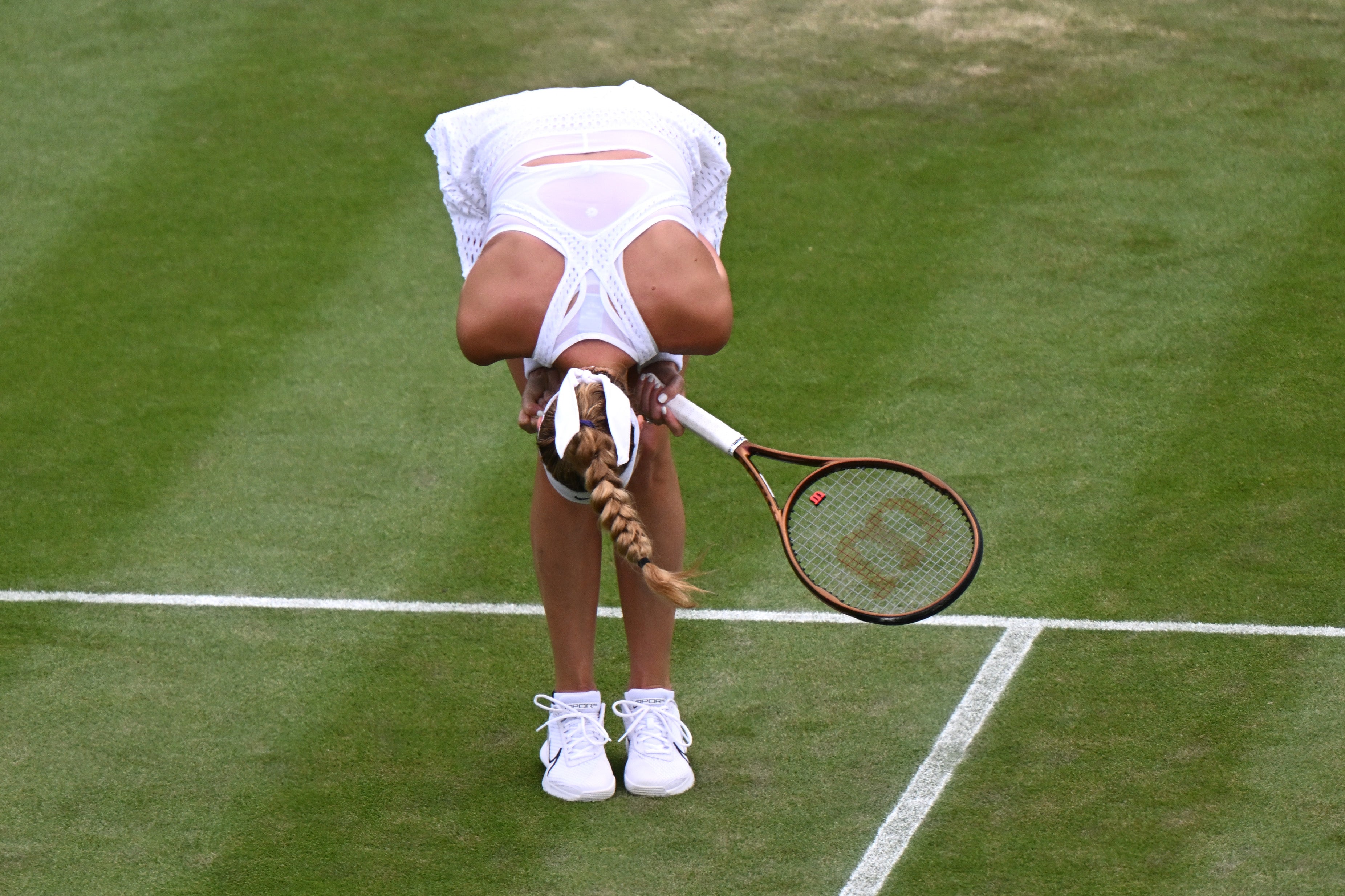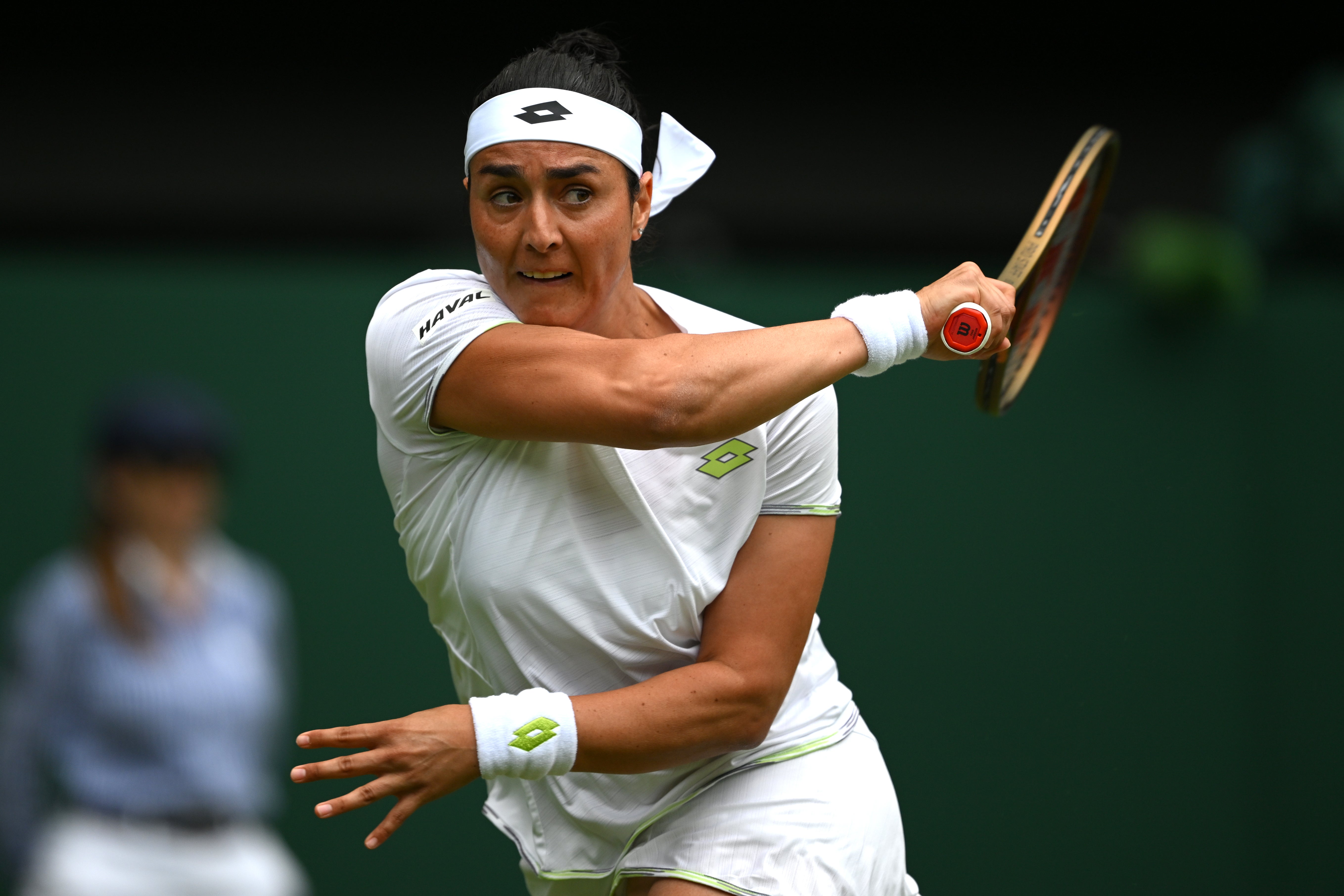Has Ons Jabeur found the key to Wimbledon revenge against Elena Rybakina?
Last year’s runner-up thrashed two-time champion Petra Kvitova on Monday, setting up a rematch of the 2022 final
Your support helps us to tell the story
From reproductive rights to climate change to Big Tech, The Independent is on the ground when the story is developing. Whether it's investigating the financials of Elon Musk's pro-Trump PAC or producing our latest documentary, 'The A Word', which shines a light on the American women fighting for reproductive rights, we know how important it is to parse out the facts from the messaging.
At such a critical moment in US history, we need reporters on the ground. Your donation allows us to keep sending journalists to speak to both sides of the story.
The Independent is trusted by Americans across the entire political spectrum. And unlike many other quality news outlets, we choose not to lock Americans out of our reporting and analysis with paywalls. We believe quality journalism should be available to everyone, paid for by those who can afford it.
Your support makes all the difference.For all the similarities between Petra Kvitova and Ons Jabeur, it will have been their differences that stood out to Jabeur on Monday morning.
Both women entered Wimbledon as top-10 seeds, with career-high rankings of No 2 in the world, and as past finalists at SW19. But while Jabeur’s sole final at the All England club ended in heartbreaking fashion one year ago, with the Tunisian beaten by Elena Rybakina in three sets, Kvitova has altogether happier memories on Centre Court. It was on this manicured lawn that the Czech claimed both of her major titles, breezing past Maria Sharapova in 2011 and dismantling a young Eugenie Bouchard in 2014.
On Monday afternoon, however, all that mattered to Jabeur was the trajectory ahead – not the trauma behind her, and not the triumphs behind Kvitova.
The 28-year-old, so desperate to go one step further than she did 12 months ago – and at the US Open 10 months ago – surged into an early lead and never granted Kvitova the respect or mercy to recover.
Kvitova’s perfect start was confined to a single point, an ace slung out wide. With a double-fault and three unforced errors ensuing, the 33-year-old gave up an immediate break. And while the Czech looked lethargic, across the net her opponent was moving with a lightness that belied her heavy past on this court. Her ball-striking on the run was the major margin here, exemplified by a deft forehand winner flicked across court in the third game, and an angled backhand winner from out wide to break Kvitova moments later.

At 4-0, there were the first cheers of, “Come on, Petra,” from a pro-Jabeur crowd, as the former champion crouched with a wince to flex her knees, having just struck a second double-fault. The support from the stands was as fleeting as Kvitova’s luck, though, as she watched the net cord hand Jabeur a lucky winner for 0-40, a point on which Jabeur capitalised with an outrageous drop shot. The beguiling backhand, executed from deep in the court, left Kvitova a stranded bystander.
It also left the Czech 4-0 down, and that brutal gulf became a bagel within minutes, as Jabeur placed one foot in the quarter-finals with just ‘22 on the clock.
In the next game, Kvitova shouted in defiance upon bringing up a game point for 40-15, only to see that opportunity erased by an astute challenge from Jabeur, whose floated backhand had brushed the back of the baseline. Soon enough, however, Kvitova had her hold, the applause of the crowd, and another roar to echo around her familiar, Centre Court surroundings. Most importantly, she had her reprieve.
It was all too brief for her.
Two more well-judged challenges from Jabeur conjured a break point, before Kvitova gifted the Tunisian the game with another double-fault. Jabeur’s movement remained a decisive factor as she stayed two steps and two games ahead of her opponent, and her shots seemed to only sharpen by the minute. Even when Kvitova threw her body behind the ball to pummel a backhand into the corner, Jabeur had the answer with a crisp forehand winner up the line. One point later, the 28-year-old again responded to increasing pressure from Kvitova in fine fashion, curling a forehand into the corner to break for a 4-1 lead.

But Kvitova, a few games on from her moment of reprieve, was now ready for a moment of resistance. Tidying up her toolbox, the Czech found larger hammers to bash Jabeur onto the back foot with brutal groundstrokes, winning back-to-back games to narrow the deficit.
Jabeur could not wield that level of power, but it was in her speed and the subtlety of her touch that she reasserted herself, moving to within a game of the quarter-finals before breaking Kvitova to love.
With that, last year’s runner-up sealed victory – a victory she punctuated with a leaping punch of the SW19 air – and a rematch with Rybakina.
“I respect a lot what Petra has done for women’s tennis,” the Tunisian said on court, having just played as if she had no respect for Kvitova whatsoever. She then, ironically, went on to talk of the lack of “mercy” that Rybakina has for her opponents, yet perhaps the greatest characteristic that Jabeur displayed against Kvitova was that same kind of ruthlessness.
“It will be a difficult match,” she admitted. “It was a difficult final last year, [the quarter-final] is definitely going to bring a lot of memories. I’m probably going for my revenge.”
In pursuit of that revenge, Jabeur will have to be ruthless against Rybakina.



Join our commenting forum
Join thought-provoking conversations, follow other Independent readers and see their replies
Comments